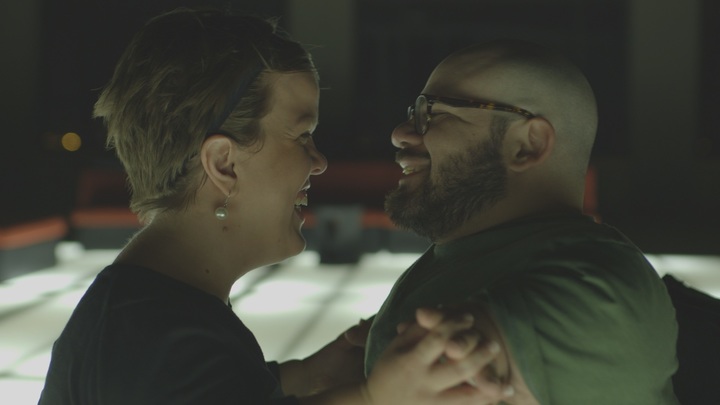'Puzzle'
With notable roles in “Trainspotting,” “Gosford Park,” “Nanny McPhee,” “No Country For Old Men” and “Brave” — as the voice of Merida, the feisty Scottish princess — it’s rather strange that Kelly Macdonald isn’t better known and respected as one of the strongest actors working.
“Puzzle,” a slight but thoughtful drama, gives Macdonald a more prominent role than she usually gets, and she makes the most of it.
Macdonald plays Agnes, a Connecticut homemaker who does everything for her husband, Louie (David Denham), and their two teen sons, Gabe (Austin Abrams) and Ziggy (Bubba Weiler). She’s so subservient, we see in the opening moments, that she does all the work arranging, cooking for and cleaning up after her own birthday party.
On this birthday, someone gives her an odd present for a 40ish woman: A jigsaw puzzle. The next morning, instead of her usual list of chores, she stops and assembles the puzzle, and realizes she’s actually really good at it. She recognizes the patterns quickly, knows intuitively what fits with what, and sees the whole picture long before it’s done.
Soon she decides she wants more. She takes the train into New York, and finds a puzzle shop. There, she learns that someone is looking for a jigsaw-savvy partner for competitive puzzle solving. On an impulse, she texts the number, and soon meets its owner, Robert (played by the great Indian actor Irrfan Khan), an inventor who uses puzzles to shut out the depressing drone of the daily news.
Without telling Louie, the good Catholic Agnes starts making regular trips into the city to practice with Robert for an upcoming national tournament. But the cascade effect of Agnes lying to her husband collides with the joy and excitement she feels — possibly for the first time in her life — when she puts together a jigsaw puzzle.
Director Marc Turteltaub captures Agnes’ dour, drab existence, and how it gradually brightens as her puzzle skills, and Robert’s encouragement, propel her toward standing up for herself in ways she never could before. The schematics of this change — as assisted by writers Oren Moverman (“Love & Mercy”) and Polly Mann, remaking Natalia Smirnoff’s 2009 Argentine film of the same name — are a bit predictable and plodding, but the payoff rather muted because of it.
Macdonald is a joy to watch, as she modulates Agnes’ emotional awakening with pinpoint precision. She finds the specific gravity of this character, so dedicated to her husband’s and her sons’ wellbeing that it takes time for her to accept the idea that there’s something she can do solely for her own pleasure. It’s a performance so good that all Turteltaub has to do is not get in the way.
——
‘Puzzle’
★★★
Opened July 27 in select cities; opens Friday, August 24, at the Broadway Centre Cinemas (Salt Lake City). Rated R for language. Running time: 103 minutes.







